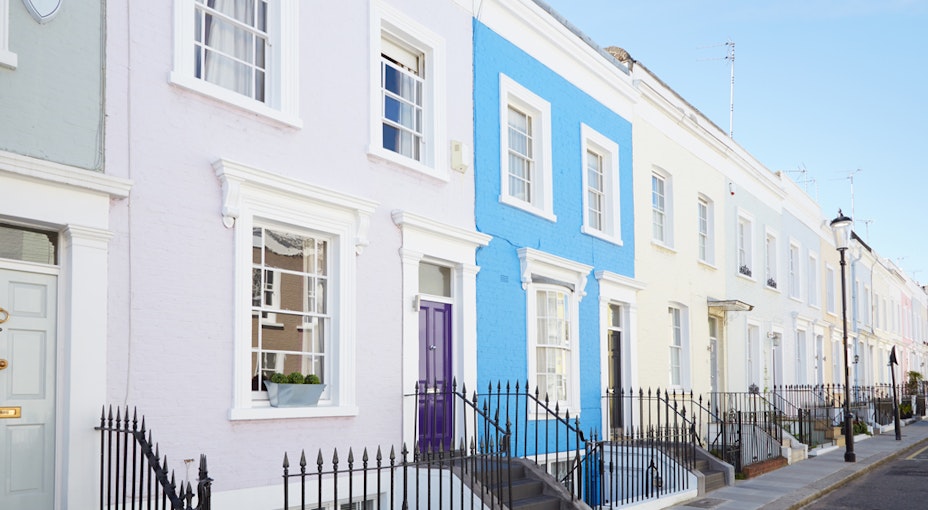What are the differences between buildings insurance and home insurance?
When you buy a property to live in or to rent out, one of the things on your to-do list will be insurance. Unfortunately, choosing the right cover can be confusing. Once you’ve started shopping around, you may be wondering whether building insurance is the same as home insurance. Or whether homeowners and landlords need different types of insurance? Or where does contents insurance fit in?
08.08.25

Fortunately, it’s quite easy to select the right insurance when you’re familiar with the different terminologies. So, to help you understand the differences between buildings insurance, home insurance and other related cover, this article looks at the various property insurance policies available to help you select the right policy for your needs.
Is building insurance the same as home insurance?
‘Home insurance’ is an umbrella term that’s used for a range of different policies. For example, it can be used to refer to building insurance, home contents insurance, or a policy that covers both. In addition, it can also refer to a policy that covers homeowners or landlords, although different ownership types require different cover.
What type of cover can ‘home insurance’ refer to?
To show you what home insurance (or house insurance) can refer to, this table outlines the main types of cover and who needs them.
|
TYPE OF POLICY |
PURPOSE |
WHO NEEDS IT? |
|---|---|---|
Building insurance |
To cover the structure of the property against damage such as fire, flood, or subsidence. |
Homeowners Landlords It is usually required by mortgage providers. |
Contents insurance |
This covers items and belongings within the property against damage or theft. |
Homeowners. Tenants. For their own possessions. Landlords. If they provide furniture / appliances. |
Unoccupied home insurance |
This can cover both the building and contents of a home that’s unoccupied for an extended period (more than 30 days). |
Homeowners. Landlords (between tenancies). |
Home renovation insurance |
Buildings and contents cover for properties undergoing renovation works. |
Homeowners. Landlords. |
Listed building insurance |
Building insurance that covers specialist repairs to buildings of historical or architectural interest. |
Owners of residential listed buildings. |
High-value home insurance |
This covers buildings and contents of a particularly high value. |
Owners of properties with a high rebuild value and high-value contents, such as antiques or fine art. |
Holiday home insurance Serviced accommodation insurance Airbnb insurance |
Combined buildings and contents insurance for properties that are rented on short-term lets. |
Owners of short-term-let holiday homes. |
As you can see, the term ‘home insurance’ includes a wide range of cover for homeowners, landlords, and tenants.
Building insurance & landlord building insurance
You’re not legally required to take out building insurance, although mortgage lenders normally require it of both homeowners and landlords. That said, to protect your valuable asset, arranging insurance for it is sensible and highly recommended to protect you from financial harm if loss or damage occurs. It will also usually provide the necessary liability covers you’ll need as a property owner.
Building insurance provides protection for the structure of the property, including any permanent fixtures within it. Generally, this includes roofing, bathroom fittings, integrated kitchens, and more. Building insurance can also cover outbuildings such as sheds, garages, and greenhouses. Policies will protect against risks including fire, flood, vandalism, subsidence and even damage from the impact of vehicles or trees.
If you rent out your property, it’s important to get specialist landlord building insurance. A rented property cannot be covered under a standard building insurance policy, as the risks to the insurer are different; landlord building insurance provides protection for these.
Finally, to avoid being underinsured, always make sure that your building insurance covers the full cost of rebuilding your property from scratch. Rebuild costs should include architects’ fees, demolition, clearance, groundwork and more.
Contents insurance
These policies cover items within a home, such as furniture, personal belongings, electrical equipment, and more. Policies generally cover risks to contents such as fire, theft, and flooding.
Contents insurance can be useful for homeowners, tenants, and landlords. Homeowner policies will cover all contents. Tenant policies will cover those items that belong to tenants. Landlords will generally opt for a contents policy if they want cover for items they have supplied in a tenant’s home, such as appliances or furniture.
Specialist home insurance cover
There are various specialist types of home insurance that protect properties and their owners’ belongings. These include:
Unoccupied building insurance. This is particularly useful for landlords with a significant gap between tenancies, and homeowners if they will be away from the property for extended periods (over 30 days).
Listed buildings insurance. Buildings of significant historical or architectural interest are listed by Historic England, Historic Environment Scotland, Cadw (in Wales) or the Historic Environment Division of the Department for Communities in Northern Ireland. Listed buildings often need specialist techniques from skilled craftspeople to restore the property to its original condition, which leads to a higher rebuild cost.
Home renovation insurance. These policies cover properties that are undergoing renovations or an extension. Policies can be adapted depending on whether the property will be occupied during the works.
High-value home insurance. This can provide you with a combination of high-value building insurance and contents insurance. It’s suitable for people with properties with a high rebuild cost and valuable or collectable possessions such as paintings, sculptures, and antiques.
Holiday home insurance. This can cover both buildings and contents of your short-term-let holiday home, including for serviced accommodation and properties let through Airbnb. It can also be adapted if you only use the property as a second home to your main residence.
Need help with your insurance?
Whether you need a quote, have a general enquiry, or want to talk it through over the phone, we're here to help.
Make an enquiry – general and locations
Related guides and insights

A guide to home insurance extras
A guide to popular home insurance extras and whether optional insurance features are right for you and worth the extra expense.

What to do if your home insurance claim is rejected
We look at common reasons why home insurance claims are declined, what to do if your claim is rejected, and how you can minimise the risk of a rejected claim in the future.
